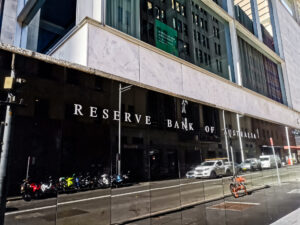The industries that cried wolf

According to the Chairman of BlueScope Grahame Kraehe:
“The implementation of such a carbon tax in its current form runs a high risk of the steel industry reaching a tipping point where it will no longer be able to maintain the investment required for viable production in Australia.”
Similarly, the Managing Director of Brickworks has warned:
“The end result will be an exodus of manufacturing industries and investment offshore, jobs will be lost, the cost of housing will increase and there will be no change to carbon emissions.”
The polluters’ argument appears to be that “you can’t hurt companies as big as ours without hurting the economy as a whole”. But how much hurt will a price on carbon actually inflict if the Government sticks with its generous compensation package? Under the Carbon Pollution Reduction Scheme, companies that were deemed to be both emission intensive and trade exposed became classified as EITEs and, depending on how emissions intensive they were, were eligible to receive either 94.5 per cent or 66 per cent of their emission permits for free.
Using Department of Climate Change and Energy Efficiency data on the EITEs, The Australia Institute has calculated that a carbon price of $20, offset by the CPRS compensation arrangements, would account for just 0.4 per cent of the steel industry’s revenue. For a company such as BlueScope, that equates to around $34.5 million per annum (assuming that they have no capacity to reduce their emissions). While $34.5 million may seem like a large amount of money in absolute terms, in the context of other costs BlueScope is able to absorb such as the rising exchange rate and wage costs, it is in fact quite small. Indeed the Treasurer endorsed this view yesterday, stating: “The fact is the impact of a carbon price on sectors such as coal, steel and aluminium will be negligible compared to fluctuations in commodity prices and exchange rates.”
Companies in Australia have for many years mounted arguments that unless their demands for low wages, low taxes and generous industry assistance are met they will be forced to shift their operations offshore. However, the response by some business leaders to the introduction of a modest carbon price, accompanied by massive compensation, is unprecedented both in the extent of the exaggeration and the relative lack of scrutiny to which these exaggerated claims have been subjected.
While it is true that some industries in Australia operate on very slim profit margins in world markets that are highly responsive to small changes in price, the steel industry is not one of them. When it comes to the debate about the impact of putting a price on carbon, Australia’s big polluters have turned crying wolf into an art.
Between the Lines Newsletter
The biggest stories and the best analysis from the team at the Australia Institute, delivered to your inbox every fortnight.
You might also like
Tasmanian Salmon Industry: Few Jobs, Less Tax
New research released by The Australia Institute today highlights the modest jobs numbers and tax payments by the Tasmanian salmon industry.
Increasing minimum wage would not drive inflation up: new report
A significant increase to the minimum wage, and accompanying increases to award rates, would not have a significant effect on inflation, according to new analysis by the Centre for Future Work at the Australia Institute.
Support For Tasmanian Salmon Motion Would Ignore Voters, Economics and Science
With Tasmania’s Legislative Council set to vote on a motion praising the state’s salmon industry, research released today by the Australia Institute Tasmania shows a strong majority of residents in the Tasmanian electorate of Franklin are concerned about the health of the state’s coastal marine environment, including the impacts of salmon farming on marine life.
